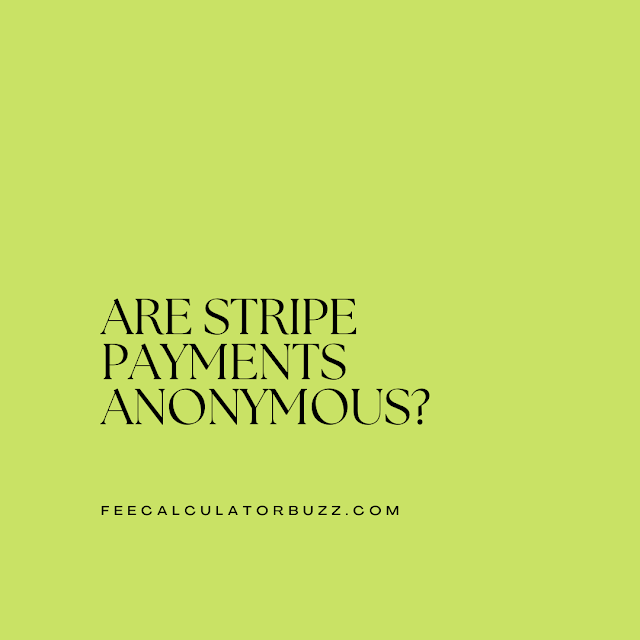Are Stripe Payments Anonymous? Exploring the Benefits and Limitations of Using Stripe for Anonymous Transactions
I. Introduction
Stripe is a well-known online payment platform that lets businesses and people accept and send payments over the internet. It has many features, such as the ability to process credit card payments, handle subscriptions and recurring billing, and make international transactions easier.
Anonymity in online transactions means keeping your personal and financial information secret during a financial transaction. Some people may like being anonymous for reasons like wanting more privacy or needing to keep sensitive information safe.
In this article, we'll look at how anonymous Stripe payments can be, as well as the pros and cons of using Stripe for anonymous transactions.
II. What is Stripe?
John and Patrick Collison, two Irish business people, started Stripe in 2010. It quickly became known as a safe and easy-to-use way to process payments, and now millions of businesses and people all over the world use it.
One of the best things about Stripe is how easy it is to use. It's easy to add to websites and mobile apps, and it comes with a variety of tools and libraries for developers to make the process smooth and easy. Stripe also has a strong security system with features like encrypted data storage and fraud detection to protect both merchants and customers.
III. Anonymity in Online Transactions
When talking about online transactions, "anonymity" means being able to keep your personal and financial information private. This can include a person's name, address, and information about how to pay.
There are several ways to pay online without being seen. One example is the use of cryptocurrency, like Bitcoin, which lets people make transactions without revealing who they are. But it should be noted that the anonymity that cryptocurrency offers is not perfect. In some cases, law enforcement may be able to find out who owns a Bitcoin address.
IV. Stripe's Approach to Anonymity
So, how does Stripe deal with the fact that online transactions can't be tracked? Stripe asks its users for and stores their personal and financial information so that it can process payments and meet legal requirements. This information includes things like your name, address, and credit card number.
Stripe, on the other hand, has taken steps to protect its users' privacy. It encrypts sensitive information and stores it on secure servers, for example. It also has rules in place to stop people from getting into user information without permission.
Stripe doesn't say it doesn't allow anonymous transactions, but there are some things you should know. For example, Stripe may need more proof for transactions that it thinks are high risk, like those with a lot of money or a strange pattern of activity. In these situations, Stripe may ask the user for more information to make sure they are who they say they are.
V. Advantages of Using Stripe for Anonymous Transactions
Even with these restrictions, there are still some good things about making anonymous transactions with Stripe. One benefit of using a trusted payment processing platform like Stripe is that it gives you more privacy and security. By using Stripe, users can be sure that their personal and financial information is handled in a safe and encrypted way, which can give them peace of mind.
Using Stripe for anonymous transactions is also helpful because it is easy and quick to use. Stripe is easy to use and has a lot of features that make it simple to accept and make online payments.
VI. Disadvantages of Using Stripe for Anonymous Transactions
There may be some pros to using Stripe for anonymous transactions, but it's also important to think about the cons.
One problem is that Stripe, like all financial institutions, has to follow laws and rules that could make it harder for it to handle transactions anonymously. For example, laws against money laundering and "know your customer" rules may require Stripe to check the identities of its users in some situations. This could make it harder for people who use Stripe to stay anonymous.
Fraud is another thing that could go wrong. Even though Stripe has ways to find and stop fraud, there is always a chance that an anonymous transaction could be used to help with illegal activities. This could put people in danger legally or financially.
VII. Conclusion
In short, Stripe does not say that anonymous transactions are not allowed, but it is important to know the limits and possible risks. On the one hand, using Stripe for anonymous transactions can give you more privacy and security, as well as the convenience and ease of use that come with using a trusted payment processing platform. On the other hand, you have to think about legal and regulatory issues as well as the chance of fraud. In the end, a person's decision about whether or not to use Stripe for anonymous transactions depends on their own needs and circumstances.




